5 Reasons to Try TCM for Alternative Fertility Treatments

Link copied! For many individuals and couples facing fertility issues, the desire to bring new life into the world can be emotionally and physically taxing. However, in recent years, Traditional Chinese Medicine (TCM) has emerged as an alternative or complementary approach to Western fertility treatments. TCM, rooted in ancient wisdom and holistic principles, offers a unique perspective on fertility—one that resonates with the desire for balance, harmony, and natural well-being. In this article, we will explore why an increasing number of people are turning to TCM as an infertility treatment in Singapore. Keep reading to find out more. 1. TCM Works in Tandem With Western Fertility Treatments You do not have to choose between one or the other. In fact, many couples find that combining TCM for fertility with Western treatments can enhance their chances of success. As a complementary fertility therapy, TCM can help prepare your body for procedures like IVF or IUI. Through acupuncture and herbal medications, TCM supports both the body and mind, making the process more effective and less stressful. 2. Natural Treatments for a Gentle Approach If you are concerned about the potential side effects of Western fertility treatments, TCM provides a gentler and more natural alternative. TCM practitioners at Oriental Remedies Clinic focus on restoring balance and harmony within the body through the combination of traditional and tech-enhanced therapies. This solution can be especially appealing to individuals who prefer a holistic, drug-free path to fertility. Learn more: 7 TCM Tips to Boost Fertility the Natural Way 3. Ideal for Family Planning TCM is not just for couples struggling with infertility. They are beneficial in improving your overall reproductive health and increasing your chances of conceiving when you are ready to expand your family. Beyond that, these alternative fertility treatments can help to support a smooth pregnancy and aid in faster recovery post-childbirth for women. 4. Tech-Enhanced Therapies That Support and Enhance Treatments Some TCM clinics in Singapore have embraced technological advancements to enhance their fertility treatments. At Oriental Remedies clinic, our physicians utilise tech-enhanced therapies such as Electro-Lymphatic Therapy and Cell Pro Therapy to support and improve the success rate of conceiving. When couples face multiple imbalances in the body, due to chronic stress, inflammation, and poor blood and lymphatic circulation, the combination of TCM and technology together can target these issues more efficiently, providing a holistic treatment that accelerates your fertility journey. 5. Boosts Overall Health and Well-Being TCM does not just focus on fertility; it promotes overall health and well-being. When you choose TCM as an alternate approach to fertility treatment, you are not just targeting one aspect of your health. You are nurturing your body’s balance, which can lead to better physical and emotional health. Many patients report increased energy, reduced stress, and improved mood, which can all contribute to higher chances of conceiving1. TCM: Your Natural Path to Fertility If you are exploring alternative fertility treatments in Singapore, consider the benefits of TCM. Remember, it is essential to consult with a qualified TCM practitioner known for their expertise in fertility care. They can create a personalised TCM fertility care plan that addresses your unique needs and concerns. Our physicians at Oriental Remedies Clinic are committed to supporting your fertility journey every step of the way. Get in touch with us to find out more. References: 1 Sharma, R., Biedenharn, K. R., Fedor, J. M., & Agarwal, A. (2013). Lifestyle factors and reproductive health: Taking control of your fertility. Reproductive Biology and Endocrinology: RB&E, 11, 66. https://doi.org/10.1186/1477-7827-11-66 RELATED TOPICS YOU MIGHT ALSO LIKE
Preparing Your Body For Pregnancy
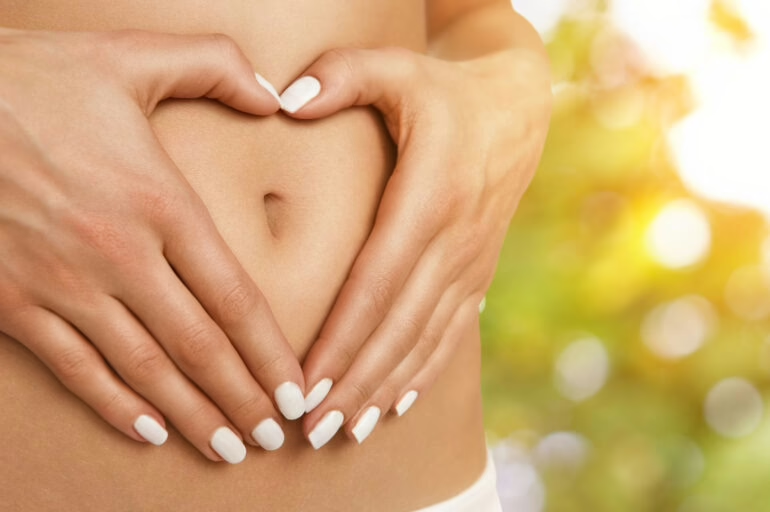
Link copied! Preparing for pregnancy is a meaningful step that can have a big impact on your fertility and overall health as a couple. Taking time to get ready helps create the best environment for conception and ensures you are both physically and emotionally prepared for the journey ahead. With a proactive approach, you can increase your chances of conceiving, catch and address potential health concerns early, and build healthy habits that benefit both parents and your future child. Effective preparation depends on your unique body types and goals as a couple. Since fertility tends to drop sharply after age 35, it’s important to start early[1]. Preparation can take anywhere from three months to a year, giving you enough time to make important lifestyle adjustments and plan for this new chapter[1]. It is best for both partners to be involved in fertility efforts since male and female factors are equally important. Research shows that male infertility contributes to about 40–50% of fertility challenges, highlighting why both partners should be proactive[2]. Getting professional guidance before trying to conceive can be very helpful. Medical check-ups, like hormone tests for women and semen analyses for men, can pinpoint any reproductive issues. Conditions like diabetes, high blood pressure, or thyroid problems can also impact pregnancy outcomes, so it is key to visit your doctor to make sure these are well-managed. If any health concerns come up, addressing them with the right treatments can get your body ready and boost your chances of a healthy, successful pregnancy[3]. Nourishing your body Supporting your fertility journey with appropriate supplements can play a vital role in ensuring a healthy pregnancy. Key supplements include folic acid, iron, and DHA: Folic Acid: This essential B vitamin significantly reduces the risk of neural tube defects, such as spinal cord and brain abnormalities, in newborns. It is generally recommended to start taking 400–800 mcg of folic acid daily at least three months before conception and continue through the first 12 weeks of pregnancy[4]. Iron: Regular iron supplementation helps increase red blood cell production and prevents anemia, which can impact both maternal health and fetal development. The recommended daily dosage is 100–200 mg, depending on individual needs and medical advice[5]. DHA (Docosahexaenoic Acid): An omega-3 fatty acid, DHA supports the development of your baby’s brain and eyes. A daily dosage of 300 mg of DHA is typically recommended for pregnant women to ensure optimal fetal development[5]. Traditional Chinese Medicine From a Traditional Chinese Medicine (TCM) perspective, herbal remedies, acupuncture and moxibustion can further support fertility. These treatments work by improving blood circulation to the womb and balancing hormone levels, helping to create an optimal environment for conception. Following a consultation with a TCM practitioner, personalised treatment plans—including tailored herbal prescriptions and specific acupuncture points—may be recommended. Herbal medications Research suggests that herbal medicine may double pregnancy rates[6]. Commonly used herbs in TCM to enhance fertility include sangjisheng (桑寄生), duzhong (杜仲), shudihuang (熟地黄干), nuzhenzi (女贞子), and danggui (当归). These herbs work by strengthening kidney essence and promoting blood flow, which are believed in TCM to play a significant role in boosting fertility. Acupuncture Specific acupressure points such as sanyinjiao (SP6), zusanli (ST36), shenshu (BL23), qihai (CV6), guanyuan (CV4), and zigong (EX-CA-1) can be beneficial for enhancing Qi and blood circulation while stimulating kidney function, supporting reproductive health. Moxibustion Moxibustion involves the combustion of moxi-sticks to warm the body and boost circulation to the womb area, helping to prepare the body for pregnancy. Research supports that moxibustion can increase endometrial thickness, which is crucial for enhancing implantation rates and improving pregnancy outcomes[6]. Tech-enhanced therapies Electro-Lymphatic Therapy (ELT) Electro-Lymphatic Therapy (ELT) is a gentle, non-invasive technique designed to enhance the flow and drainage of the lymphatic system. By supporting the body’s natural detoxification processes, ELT helps to efficiently eliminate toxins, creating a healthier internal environment.The lymphatic system plays a vital role in female reproductive health, influencing hormonal balance and various gynaecological processes that are essential for conception[7]. Improved lymphatic flow can promote hormonal balance, a key factor in optimising fertility, and may enhance your chances of a smooth and successful pregnancy[8]. Cell Pro Therapy (CPT) Cell Pro Therapy utilizes Japanese technology to introduce reducing electrons, which can enhance cellular metabolism and improve blood circulation[9]. This boosts overall wellness, providing additional support for pregnancy readiness. Our holistic approach combining traditional treatments with technology-enhanced therapies is tailored to each person’s unique constitution and designed to restore balance in the body. Through promoting a smooth and healthy flow of Qi and blood, we prepare your body for a healthy pregnancy and optimise your chances for conceiving. Healthy Lifestyle Habits In TCM, engaging in regular, mild-intensity exercise helps regulate the flow of Qi and blood throughout the body. Improved circulation can enhance overall health and create a more supportive environment for pregnancy. In addition to regular exercise, maintaining a healthy weight is crucial for conception and a successful pregnancy. The ideal weight for conception varies according to height, making Body Mass Index (BMI) a helpful metric. Research indicates that a healthy BMI supports balanced levels of female hormones like estrogen and progesterone, reducing the likelihood of menstrual irregularities and other gynecological issues[10]. To promote a healthy pregnancy, it is also essential to minimise or avoid habits that can harm your health or fetal development, such as smoking. Limiting excessive caffeine and alcohol intake is equally important for optimal reproductive health[10]. Mental and Emotional Health Stress is part of life, however, excessive stress can affect your chances of conception. High-stress levels can lower your libido and may even interfere with ovulation, preventing the release of eggs necessary for fertilization. Without ovulation, conception cannot occur, ultimately reducing your chances of becoming pregnant. If you find yourself feeling overwhelmed during your fertility journey, consider the following strategies to alleviate stress[11]: Engage in a new hobby or activity to help shift your focus from trying to conceive. Connect with family or friends to share your thoughts and feelings. Practice relaxation techniques such as
5 Conditions You Didn’t Know Could Affect Fertility
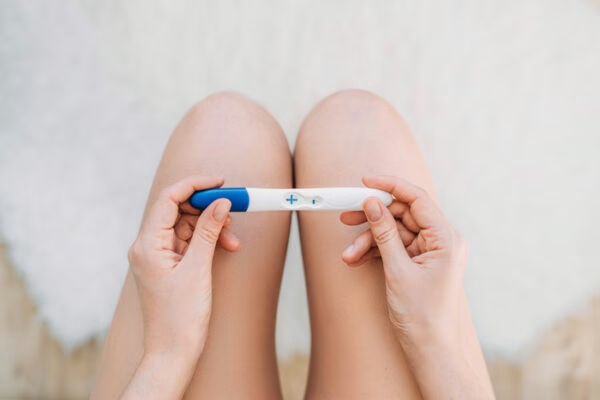
Link copied! Fertility issues are often shrouded in misconceptions, with many people attributing difficulties in conceiving solely to age or reproductive health. While it’s true that age and the health of the reproductive system play significant roles in fertility, these factors only scratch the surface of what can influence one’s ability to conceive. Fertility is a complex interplay of various bodily systems, environmental factors and lifestyle choices. Surprisingly, several conditions that might seem unrelated at first glance can significantly impact fertility. Understanding these lesser-known factors is crucial for those trying to conceive, as it can help identify and address potential obstacles more effectively. Here, we explore five conditions you might not know could affect fertility. 1. Thyroid Disorders The thyroid gland is a small but mighty organ crucial in regulating metabolism and hormone production, both essential for reproductive health. Thyroid disorders, such as hypothyroidism (underactive thyroid) and hyperthyroidism (overactive thyroid), can significantly impact fertility. In women, an underactive thyroid can lead to prolonged menstrual cycles, heavy periods, or even the absence of menstruation. This occurs because insufficient thyroid hormones interfere with the production of sex hormones like estrogen and progesterone. The resulting hormonal imbalance can prevent the maturation and release of eggs, hampering ovulation and making it difficult to conceive [1]. In men, though less common, low thyroid hormone levels can result in decreased testosterone levels, which are associated with erectile dysfunctions, delayed ejaculation and deteriorated semen quality [2]. Conversely, an overactive thyroid can cause irregular menstrual cycles and lighter, shorter periods in women. Excess thyroid hormones can accelerate metabolism and disrupt the normal balance of reproductive hormones such as follicle-stimulating hormone and luteinising hormone, leading to irregular ovulation or even the complete absence of ovulation [3]. In men, elevated thyroid hormone levels affect testosterone levels, thereby affecting testicular functions, semen volume and quality [4]. In TCM, thyroid disorders are often linked to imbalances in Yin and Yang. Hypothyroidism is often associated with Yang deficiency, which leads to a dip in overall Qi and energy levels. This imbalance can manifest as fatigue, sensitivity to cold and constipation. On the other hand, hyperthyroidism is attributed to Yin deficiency, resulting in a dehydrated body constitution with symptoms such as dry skin and eyes, heart palpitations and weight loss. TCM offers a holistic approach to regulating thyroid function and improving overall fertility through personalised herbal medication and acupuncture. Herbal formulas are tailored to each individual’s needs, nourishing Yin or Yang as required, while acupuncture helps harmonise the body’s energy flow, promoting optimal thyroid health and enhancing fertility. Tech-enhanced therapies like Electro-Lymphatic Therapy (ELT) help stimulate lymphatic flow to improve circulation and regulate the flow of hormones while Cell Pro Therapy introduces reducing electrons into the body, helping to improve cellular metabolism and oxygenation, further supporting thyroid health. With this comprehensive approach, individuals can achieve a better hormonal balance, paving the way for improved reproductive health and increased chances of conception. 2. Polycystic Ovary Syndrome (PCOS) Polycystic Ovary Syndrome (PCOS) is a hormonal disorder that is becoming increasingly more common, affecting an estimated 8–13% of women of reproductive age, with up to 70% of cases remaining undiagnosed [5]. PCOS is characterised by irregular menstrual cycles, excess androgen levels and polycystic ovaries. Women with PCOS may have elevated levels of hormones such as estrogen, luteinising hormone and anti-müllerian hormone. These hormones regulate menstruation and ovulation by controlling the growth of the uterine lining and triggering ovulation. Disruptions in these hormone levels interfere with ovulation, making it difficult to conceive [6]. In TCM, PCOS is associated with Phlegm-Dampness accumulation and Blood stagnation. A modern sedentary lifestyle, combined with a diet high in processed and fatty foods, can impact our Spleen, or digestive system in TCM. This causes an uneven distribution of nutrients and fluids in our body, an accumulation Phlegm-Dampness, resulting in symptoms such as weight gain, oily skin and a lowered metabolism. Additionally, this accumulation can disrupt the flow of Blood, causing it to stagnate and accumulate in the womb, which affects reproductive organ function and creates a less-than-ideal environment for conception. Despite being one of the leading causes of infertility in women, PCOS can be managed with herbal medication, acupuncture and lifestyle modifications. Herbal medications are prescribed to address root issues, such as removing Phlegm-Dampness from the body, while acupuncture helps to regulate organ energy and hormone levels. Tech-enhanced therapies such as Electro-Lymphatic Therapy help promote smooth lymphatic flow, which boosts circulation and alleviates symptoms caused by Phlegm-Dampness. Improved lymphatic flow also helps regulate hormone levels and create a uterine environment that is more conducive for pregnancy. Together, TCM and tech-enhanced therapies work to regulate menstruation, balance hormone levels and increase the chances of getting pregnant. 3. Endometriosis Endometriosis is characterised by severe pain in the abdomen or lower back during menstruation. This condition occurs when tissue similar to the lining of the uterus grows outside the uterine cavity. Each month, when the uterine lining sheds during menstruation, this tissue outside the uterus also sheds into the abdomen, leading to severe pain, chronic inflammation and scar tissue formation. These scars can create adhesions between reproductive organs, distorting pelvic anatomy, including the fallopian tubes and ovaries. This distortion can interfere with the release and transport of eggs, hindering their journey to meet sperm for fertilisation. Additionally, the inflammatory environment created by endometriosis is hostile to sperm, eggs, and embryos, making fertilisation and implantation more challenging [7]. Endometriosis is often underdiagnosed because its symptoms can be mistaken for regular menstrual pain. Early diagnosis and treatment can significantly improve fertility outcomes for those trying to conceive. In TCM, endometriosis is associated with Blood stagnation in the womb. Blood stagnation can result from Qi stagnation, Cold accumulation or Dampness. These factors disrupt the normal flow of Qi and Blood, leading to pain and poor womb conditions for fertility TCM offers effective treatments for endometriosis through acupuncture and moxibustion, which help relieve pain, expel Cold, and balance uterine conditions. With a proper diagnosis, herbal medication can address underlying
Why Do I Keep Having Unexplained Miscarriages?

Link copied! Experiencing the loss of a pregnancy is a deeply emotional journey for couples aiming to conceive. Unexplained miscarriages add layers of confusion and heartache, leaving many seeking answers and support. In these challenging times, it’s crucial to understand the causes, signs and steps to take after a miscarriage, especially if you are looking to optimise the chances of your next pregnancy. Understanding Recurrent Miscarriages Recurrent miscarriages, where a couple experiences at least two consecutive miscarriages, pose a significant challenge for those hoping to start a family. Despite advances in medical knowledge, about half of recurrent miscarriages remain unexplained, adding emotional distress and uncertainty to the journey to parenthood[1]. The causes of recurrent miscarriages can stem from various factors affecting the woman, man, fetus, or placenta[2]. Women may face issues like abnormalities in the uterus or cervix, chromosome abnormalities, or poorly controlled chronic conditions such as diabetes, hypertension, lupus and thyroid disorders, all of which can contribute to pregnancy loss[2]. Similarly, genetic or structural abnormalities in the fetus can greatly affect pregnancy outcomes[2]. While the causes from the father’s side are less clear, a higher risk of miscarriage is linked with abnormal semen analysis[2]. Despite thorough medical evaluations, a significant number of recurrent miscarriages defy clear diagnosis, highlighting the complexity of reproductive health. Additionally, certain risk factors like extreme weight (either underweight or overweight), unhealthy habits such as smoking, and excessive caffeine intake can increase the likelihood of miscarriage[3]. Lifestyle choices thus play a pivotal role in overall wellness and reproductive health. The risk of another miscarriage after the first one occurs is higher, approximately 20%[4]. Therefore, it is crucial to focus on healing both physically and emotionally during this time before conceiving again. Deciding when to try again is a personal decision, and you may want to discuss the timing of your next pregnancy with your healthcare provider. While Western medicine does not strictly recommend a waiting period before trying again, some medical professionals suggest waiting for a certain amount of time, typically three months for the uterus to recover and menstrual cycles to normalise[5]. TCM self-care tips after a miscarriage After a miscarriage, TCM strongly recommends a period of “mini confinement” for recovery. This practice encourages ample rest and allows the body to restore its delicate balance, including addressing any potential hormonal imbalances that may have contributed to the loss. It is completely understandable to feel lost and helpless in the wake of a miscarriage. However, this restorative confinement period is crucial for promoting physical healing and emotional well-being. By taking the time to nurture yourself, you give your body the best chance to regain its equilibrium before trying to conceive again. Read What Should I Do After A Miscarriage? for guidance on post-miscarriage care and self-care tips from a TCM perspective. Identifying Root Causes with Traditional Chinese Medicine (TCM) TCM provides a distinctive approach to addressing unexplained miscarriages by identifying and treating underlying imbalances in the body. During a consultation, TCM practitioners conduct a thorough evaluation, which includes pulse diagnosis, tongue examination, inquiries about the frequency and timing of miscarriages, as well as menstrual history. This comprehensive assessment also involves analysing other factors such as the basal body temperature (BBT) curve, menstrual flow, colour, clot formation and mucus changes, all of which contribute to a deeper understanding of your body. While these questions may be sensitive, open and honest communication is crucial for the practitioner to develop a personalised treatment plan tailored to your unique condition, aiming to address the underlying imbalances effectively. From a TCM standpoint, the primary causes of recurrent miscarriage in TCM are deficiencies in Qi, Blood or both in the Kidney [6,7]. The Kidney plays a crucial role in growth, development, and reproduction, as it stores the essential Qi that warms and activates all other systems in the body. When there is sufficient Qi and Blood in the Kidney, the womb becomes a warm, safe, and comfortable environment where an embryo or fetus can thrive[6,7]. However, when there is insufficient Qi or Blood the embryo or fetus cannot be sustained, resulting in miscarriage[6,7]. TCM practitioners identify these deficiencies through detailed history taking, pulse diagnosis and tongue examination. Based on these assessments, they deliver personalised treatments aimed at restoring the balance in the Kidney. TCM treatments to help optimise chances of conception after a miscarriage Before trying to conceive again, ladies may seek guidance from TCM practitioners to facilitate a healing process for both mind and body. Here are some recommendations TCM practitioners may suggest: Herbal Medicine Herbal medications are often used to nourish the Kidneys, improve blood circulation and provide warmth to the womb to improve female health. Common herbal concoctions like Wu Zi Yan Zong 五子衍宗, Si Wu Tang 四物汤 and Ba Zhen Tang 八珍汤 are often prescribed for their ability to nourish blood and kidney essence. These formulations usually feature herbs such as Dang Gui 当归, Shu Di Huang 熟地黄, Du Zhong 杜仲 and Xu Duan 续断, which serve to strengthen the foundation of female health. Depending on individual needs, a personalised herbal concoction is prescribed to address specific imbalances within the body. Acupuncture and Moxibustion Acupuncture involves the insertion of needles into specific points on the body, known as acupoints. This technique aims to improve the flow of Qi (energy) and blood, addressing imbalances in the body and alleviating emotional stress. Common acupoints used for reproductive issues include Qi Hai (CV6), Guan Yuan (CV4), San Yin Jiao (SP6), Xue Hai (SP10), and others. Moxibustion is a technique that involves burning moxa (a dried herb) near acupoints on the stomach to provide warmth and improve circulation to the womb. Tech-enhanced therapies to help optimise chances of conception after a miscarriage Tech-enhanced therapies can complement TCM treatments in post-miscarriage care by optimising the body’s wellness in preparation for pregnancy. Electro-Lymphatic Therapy (ELT) Electro-Lymphatic Therapy (ELT) is a gentle and non-invasive technique that can help support the proper flow and drainage of the lymphatic system. The lymphatic system is an essential
4 Myths About Male Fertility & How TCM Helps
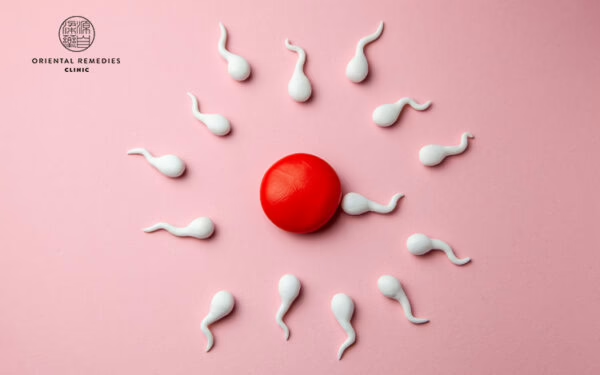
Link copied! Bringing a child into the world is a dream cherished by many couples. However, when the path to parenthood becomes challenging, it is natural to seek answers and solutions. It is a common misconception that fertility issues are solely the woman’s concern but the truth is, male fertility plays an equally crucial role. In this article, we will debunk some of the most common myths about male fertility and explore how Traditional Chinese Medicine (TCM) for fertility can be an alternative to overcoming these obstacles. Learn more: Improving Male Fertility Using Traditional Chinese Medicine (TCM) Myth 1: Only Women’s Health Matters When It Comes to Conceiving A prevalent misunderstanding is that a woman’s health predominantly influences fertility. While a woman’s well-being is undeniably essential, men should not overlook their role in this process. Factors such as smoking and excessive alcohol consumption can significantly impact the production and quality of sperm. Therefore, men also need to prioritise their health to increase the couple’s chances of conceiving. Myth 2: Age is Not a Concern When It Comes to Male Fertility While older men can still father children, sperm quality tends to decrease with age, leading to potential fertility challenges. Men of all ages should be mindful of this when planning to start a family. Myth 3: Heat Exposure Does Not Affect Fertility In Men Prolonged exposure to high temperatures has been associated with poorer male fertility. This is because sperm production and vitality depend on maintaining an optimal temperature within the scrotum, slightly lower than the body’s core temperature. When this delicate balance is disrupted due to prolonged heat exposure, it can impair sperm production in terms of both count and motility, making it more challenging for couples to conceive. Beyond external sources of heat, poorly managed metabolic conditions can also contribute to elevated body temperature, creating an unfavourable environment for sperm production. Conditions like hyperthyroidism and diabetes, for instance, can lead to increased inflammation which raises the body’s core temperature. Myth 4: Fertility Has Nothing to Do with Lifestyle Habits Contrary to the belief that lifestyle habits have little effect on fertility, our daily lives expose us to free radicals from various sources like cigarette smoke, plastics, alcohol, and electromagnetic frequencies from digital devices. Excessive free radicals can cause oxidative stress in the body, which can result in poor sperm quality. Thus, adopting a healthy lifestyle and minimising exposure to these harmful factors is crucial for improving male fertility. How TCM for Fertility Lends a Helping Hand Many couples, even those undergoing IVF/IUI, turn to TCM for fertility support. Its holistic approach to health and well-being and infertility treatments play a significant role in enhancing one’s chances of conceiving. 1. Herbal Medications Rather than merely targeting the symptoms of infertility, herbal medications aim to address the underlying causes. This can include correcting imbalances that lead to metabolic conditions, clearing inflammation from the body, alleviating deficiencies that affect sperm quality, and addressing other factors that may affect male fertility. It is essential to note that herbal medication as an infertility treatment is not a universal solution — seek guidance from a certified physician to develop a personalised treatment plan. Learn more: Top 30 Foods You Should Eat To Boost Your Fertility 2. Acupuncture Stress can lead to conditions like Liver Qi stagnation and Spleen Qi deficiency, both of which can disrupt the delicate balance required for optimal reproductive function. Acupuncture for fertility targets acupoints in men promoting Qi flow for stress relief and those linked to the Kidney and Spleen meridians to improve sperm quality. It also balances hormone levels and endocrine function, thus boosting sperm quality and viability 3. Electro-Lymphatic Therapy (ELT) ELT uses an FDA-registered device to stimulate proper flow and drainage of the lymphatic system with a gentle, non-invasive technique. By improving lymphatic flow and drainage, it helps to clear inflammation. The lymphatic system also plays a role in hormone regulation, making ELT a valuable tool for managing metabolic conditions linked to hormonal imbalances. Hence, ELT can support the management of metabolic conditions, protecting sperm quality while increasing sperm count through the improved circulation of testosterone. 4. Cell Pro Therapy Cell pro therapy helps reduce oxidative stress to protect sperm quality. The therapy introduces reducing electrons into the body, which function as an antioxidant to neutralise free radicals that cause DNA damage in sperms. It is also able to balance the autonomic nervous system and support hormone regulation, leading to a healthier reproductive system Your Journey to Fatherhood Begins Here Oriental Remedies Group offers comprehensive support for couples trying to conceive, whether through TCM fertility treatments or tech-enhanced therapies. Combining the wisdom of TCM with modern biomedical knowledge, our physicians can help couples on their fertility journey at all stages. Whether you are already undergoing IVF/IUI or have just started exploring fertility support, we can provide you with a personalised plan to increase your chances of conceiving successfully. Get in touch with us to find out more. Note: all words in Italics mentioned henceforth refer to the TCM organ system and not the anatomical organs/terms referenced in western medicine. Disclaimer: The information on this page is for information and educational purposes only. Such medical information may relate to disease, injury, drugs and other treatments, medical devices and/or health products. Medical information does not amount to advice, and if advice is needed an appropriate professional help should be sought. The disclaimer asserts that no warranties or representations are given in respect of the medical information, and that the website operator should not be held liable if a user suffers any injury or loss after relying upon the medical information. All wellness assessments and technology-enhanced therapies using wellness device(s) are intended for use only for general well-being purposes or to encourage or maintain a healthy lifestyle, and it is not intended to be used for any medical purposes (such as detection, diagnosis, monitoring, management or treatment of any medical condition or disease). Any health-related information provided by these
Supporting fourth trimester with TCM

Link copied! Bringing a child into the world marks a significant, life-altering journey, both physically and emotionally. It’s a time of profound changes, not only for the newborn adapting to life outside the womb but also for the new mother adjusting to her new role. While the focus understandably shifts to the infant, the 12 weeks following childbirth, known as the “fourth trimester,” are equally pivotal for a mother’s well-being. The fourth trimester spans the initial 12 weeks after childbirth. Throughout pregnancy, the body undergoes extensive physiological and hormonal changes, such as a surge in oestrogen and progesterone to support the baby’s development. Similarly, postpartum, the body experiences a significant transformation to return to its pre-pregnancy state. It is crucial for mothers to prioritise their well-being just as they did during pregnancy because healthy babies thrive with healthy, well-adjusted mothers. Moreover, this postpartum period includes a traditional practice known as the confinement period. In many cultures, confinement refers to a designated time frame after birth when the mother receives specialised care. This typically includes a specific diet, rest, and limited physical activity to aid in the mother’s recovery. Embracing this period can provide ample time for rest and healing, allowing the mother to rejuvenate and strengthen her body for the demands of motherhood ahead. By nurturing themselves during this time, mothers can better equip themselves for the challenges of caring for their newborns. In essence, prioritising maternal well-being during the fourth trimester is a vital investment in the health and happiness of both mother and child. TCM’s Perspective on Fourth Trimester From a TCM perspective, the postpartum recovery period typically spans six weeks inclusive of the confinement period, beginning with the expulsion of the placenta until all organs, except the mammary glands, return to their pre-pregnancy state. After the delivery of your little one, mummies are usually more susceptible to 2 states of imbalances: 1) Qi and/or Blood deficiency, and/or2) Blood stagnation TCM views the Qi or energy and the Blood constituents as the basis of the human body. The imbalances of these two components will lead to the formation and manifestation of many diseases such as postpartum hives and De Quervain’s Tenosynovitis (mommy wrist). Hence, an old Chinese saying goes “吃的好,睡的好,不如月子坐的好” which translates to “Eat well, sleep well, nothing is better than sitting the month well”, implying the importance of confinement in Chinese Culture. Hence, the primary goal of confinement is to aid mothers in recuperating from childbirth by rebalancing their Qi and Blood through dietary and lifestyle adjustments. This not only protects mothers from future health issues but also restores their strength. It is essential to recognise that TCM’s approach to the fourth trimester goes beyond mere confinement practices. It encompasses a holistic perspective that emphasises the overall well-being of mothers during this crucial period. In contemporary times, TCM practitioners adapt traditional principles to suit modern lifestyles while preserving the core essence of postpartum recovery. Consider Oriental Remedies x Wing Joo Loong confinement soup package swhich are tailored for modern moms in Singapore! Shop online for Essential or Premium Packages Caring for mom in the fourth trimester Emotional Well-being (e.g. Postpartum depression and anxiety) Postpartum mummies often face mental and emotional challenges, including the risk of postnatal depression. After delivery, the sudden drop in the hormonal levels may bring about “baby or postnatal blues” for the first couple of days and can turn into postnatal depression when symptoms start to aggravate and last for more than 2 weeks[1] . Contrary to what most know, postnatal depression can also start at any time during the first year postpartum [2]. According to a study by KK Women’s and Children’s Hospital (KKH), postnatal depression affects one in 14 women while antenatal depression affects one in eight women pre-COVID-19 [3]. The pandemic has contributed to the rising incidence of maternal depression [4]. TCM recognizes the importance of a healthy support system for mummies during this period as adequate rest and emotional care are vital components of TCM practices to ensure a balanced mental state while caring for the little one. An example would be breastfeeding, while rewarding, could be a plausible cause of anxiety in mummies, impacting their mental well-being. How can TCM help: From a TCM perspective, females rely heavily on the supply and circulation of Liver Blood for physiological functions such as menstruation, pregnancy, labour and breastfeeding. Childbirth is extremely taxing on the Liver and breastfeeding will further deplete Blood as nutrients are transformed into breast milk. Furthermore, the Liver plays an important role in the regulation of emotions through the regulation of Qi. A deficiency and stagnation of Qi could result in the inability to manage one’s emotions properly, evoking negative emotions and thoughts. Herbal medication and acupuncture are often prescribed to calm the body and rebalance the meridians. Classical herbal formulas such as 逍遥散 (Xiao Yao San), and 天王补心丹 (Tian Wang Bu Xin Dan) could be prescribed to address both the root and symptom of postpartum anxiety. However, if you are concerned about taking herbs and nursing, you can opt for our Cell Pro Therapy, which aims to rebalance our autonomic nervous system, which is linked to our “fight or flight” response. This helps recalibrate the brain to bring their mental state to a more peaceful one. It is recommended to come for 2-3 sessions per week for maximum effect on the body. If one is unable to come for consistent treatment, acupressure massages on points such as 太冲 (Tai Chong) LR3, 印堂 (Yin Tang) GV29, 血海 (Xue Hai) SP10 can help alleviate some of the symptoms. To locate 太冲 (Tai Chong) LR3: Tender point between the big toe and the second toe. To locate 印堂 (Yin Tang) GV29: It is located at the midway point between the two inner sides of the eyebrows To locate 血海 (Xue Hai) SP10: It is located 2 thumbs above and on the inner side of the patella. You should be able to feel the bulge of the quadriceps muscle on
What should I do after a miscarriage?

Link copied! Embarking on the journey to parenthood is a profound experience filled with hopes and dreams. However, amidst the joy, some individuals face the heartbreaking reality of miscarriage – an experience more common than often acknowledged, affecting approximately 10-20% of known pregnancies.[1] Miscarriage presents itself in various forms, each with its unique challenges from threatened to missed miscarriages, the spectrum is broad and often mystifying.[2] Threatened miscarriage occurs when the body signals the possibility of a miscarriage. Light vaginal bleeding or lower abdominal pain may persist for days or weeks, while the cervix remains closed. The situation may resolve, leading to a healthy pregnancy, or unfortunately progress into a miscarriage. Inevitable miscarriage can follow a threatened miscarriage or transpire without warning. It involves more pronounced vaginal bleeding and intensified lower abdominal cramps. During the miscarriage, the cervix opens, and the developing foetus is expelled amidst the bleeding. Complete miscarriage takes place when all pregnancy tissue is naturally expelled from the body without requiring medical intervention. Vaginal bleeding and cramping, akin to labour or intense period pain, signify the uterus contracting to empty. Incomplete miscarriage happens when only some of the pregnancy tissue remains in the uterus and medical intervention might be needed to remove it. Vaginal bleeding and lower abdominal cramping may continue as the uterus continues trying to empty itself. Missed or silent miscarriage occurs when the baby may have ceased development or passed away, yet the body hasn’t recognized it. Typically diagnosed during a routine ultrasound scan with the gynaecologist, usually around the 12th or 20th week “anomaly” scan. If you have a missed miscarriage, you may have a brownish discharge. Some of the pregnancy symptoms, such as nausea and tiredness, may have faded. You might have noticed nothing unusual. TCM views the Kidney Essence (Jing), Yin, Yang, and Qi as vital contributors to the reproductive system’s health and overall balance.[3] The Kidney Essence is considered the foundation of reproductive vitality, providing the raw material for conception and embryonic development. Yin and Yang represent the complementary forces maintaining harmony in the body, while Qi is the vital energy sustaining life processes. Imbalances in these elements, such as a deficiency in Kidney Essence, disruptions in Yin or Yang, or irregularities in Qi flow, are seen as potential contributors to the risk of miscarriage in TCM philosophy. TCM practitioners employ methods like pulse diagnosis and tongue examination to assess the flow of Qi and the balance of Yin and Yang within the body. Self-care after a miscarriage Navigating self-care after a miscarriage is a delicate but vital aspect of the healing process. TCM provides a holistic approach to recovery. It advocates a personalised approach, focusing on restoring balance to Qi, Yin, and Yang, integral to reproductive health. TCM also places a profound emphasis on the mind-body connection, acknowledging the intricate interplay between emotions and physical health. TCM believes that emotional well-being is integral to overall health, and imbalances in emotions can affect the Qi, the body’s vital energy and vice versa. A harmonious mind-body connection is fundamental to overall health. In TCM, a mini-confinement refers to a postpartum recovery period that involves specific practices aimed at promoting healing, restoring balance, and supporting overall well-being after childbirth or, in some cases, after a miscarriage. The duration of a TCM mini-confinement typically lasts around 14 days. During this period, individuals, especially new mothers, follow a set of guidelines and practices that vary based on TCM principles. These may include dietary recommendations, specific rest and sleep patterns, and limited physical activities. The goal is to allow the body to recover, replenish energy, and prevent the potential development of health issues in the future. Thus, a mini-confinement is essential for recovery as this intentional period set aside for self-care facilitates physical recovery, nurtures emotional well-being, and aids in restoring balance and addressing potential hormonal imbalances. TCM practices such as acupuncture and herbal remedies, are designed to restore balance and regulate emotions. During a consultation for mini-confinement, TCM practitioners will assess individual constitutions and symptoms, employing techniques like pulse diagnosis and tongue examination, and then personalise the treatments individually to address specific imbalances, promoting overall well-being. 1. TCM treatments i. Acupuncture Acupuncture, involving the insertion of thin needles into specific points, aims to stimulate the body’s energy flow, promoting balance and alleviating symptoms such as emotional distress and physical discomfort. Common acupoints used are ii. Herbal medication The herbal remedies, meticulously selected based on individual body constitutions and symptoms, complement acupuncture by nourishing the body’s Qi and Blood. These natural supplements support the body’s inherent healing processes, aiding in the restoration of energy and vitality. Herbs or herbal formulas such as Si Wu Tang (四物汤), Zuo Gui Wan (左归丸), Tu Si Zi (菟丝子) and Xu Duan (续断)[4] are commonly prescribed. 2. Tech-enhanced Therapies Integrating technology-enhanced therapies such as Cell Pro Therapy and Electro -Lymphatic Therapy (ELT) into TCM further enhances physical recovery and emotional well-being. i. Cell Pro Therapy Negative ions, abundant in natural environments like forests and waterfalls, are thought to positively affect overall wellness. Cell Pro Therapy (CPT) emits a large amount of negatively charged ions, also known as reducing electrons into the body. These reducing electrons act as an antioxidant and may promote recovery and overall wellness. Therefore, we can use Cell Pro Therapy to support the body’s recovery after a miscarriage. It may help to: Improve blood circulation by enhancing the production of nitric oxide, a molecule that helps dilate blood vessels, leading to increased blood flow and oxygen delivery to tissues which aid in recovery.[5] Improve sleep by balancing the serotonin and melatonin levels in the body. Negative ions contribute to overall well-being by enhancing oxygen flow and promoting a sense of calm and relaxation. It also balances the levels of serotonin and melatonin in the body. Serotonin is a neurotransmitter, which converts to melatonin, the hormone that helps to regulate our sleep-wake cycle, promoting better sleep quality.[6] Create a more favourable environment for reproductive health through the
Top 7 Pregnancy Facts and Myths All Women Should Know
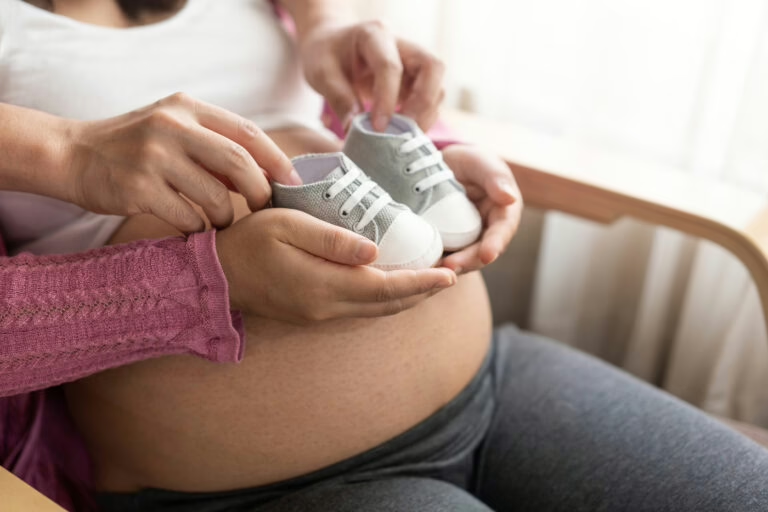
Link copied! Congratulations on becoming a parent! As a first-time mother, pregnancy and childbirth can bring excitement and uncertainties. Do you often find yourself sifting through online information and hearing various pieces of advice from loved ones about pregnancy do’s and don’ts? However, it’s essential to be aware that the internet is rife with pregnancy myths that can confuse you. Distinguishing between pregnancy facts and myths is crucial for a safe and healthy pregnancy journey. Read on as we address the top 7 pregnancy facts and myths that every woman should know to put her mind at ease. 1. Eating for Two: Myth The notion of “eating for two” has gained popularity. Still, it’s essential to understand that a pregnant woman doesn’t require double the amount of food to provide essential nutrients for the baby’s growth and development. In fact, doubling your caloric intake can lead to excessive weight gain, potentially resulting in health issues later in pregnancy, such as gestational diabetes and hypertension. According to the Singapore Health Promotion Board, during pregnancy, only an additional 300 kilocalories (kcal) daily from the second trimester onwards and 450 kcal from the third trimester are needed to ensure ample nutrients for optimal baby growth and development. Opt for nutrient-rich foods like vegetables, whole grains, and lean proteins rather than foods with empty calories and limited nutritional value. Also, avoid overeating to prevent excessive caloric intake.[1] From a TCM perspective, maintaining sufficient blood flow to the uterus is crucial to support the baby’s development, particularly in the initial three months of pregnancy. Vital organs like the Liver, Kidneys, and Spleen play significant roles in regulating Qi and Blood for adequate blood flow. Certain factors can influence the functions of these organs. Overeating, for instance, can strain the Spleen, leading to reduced Qi and Blood production, thereby affecting blood flow to the uterus. Hence, it’s advisable for expectant mothers to consume foods in moderation and favour easily digestible options to lighten the Spleen‘s workload. Another potential issue arises from consuming cold foods or chilled beverages, as this can damage Spleen Yang, affecting its function of producing Qi and Blood. Therefore, pregnant women should be mindful of their diets, opting for foods that enhance both their well-being and their baby’s growth and at the same time, avoid foods that could harm their bodies. The following table outlines some foods to avoid during pregnancy. In case of uncertainty, consulting a TCM physician for guidance is recommended.[2] Food to avoid Reason Raw, undercooked or contaminated food Harms the Spleen and Stomach’s yang and affects digestion Foods that are cooling in nature Vegetables: cabbage, lettuce, bitter gourd, kang kong Fruit: pineapple, watermelon, persimmon Foods that are high in sugar and fats Might lead to unhealthy weight gain which can lead to gestational diabetes or having oversized baby Foods that increase circulation such as black fungus, pineapple, hawthorn Especially from the beginning of pregnancy till the end of pregnancy Could increase the risk of uterus contraction and bleeding 2. Morning Sickness Only Happens in the Morning: Myth Nausea and vomiting during pregnancy are commonly referred to as “morning sickness”. Despite its name, morning sickness can occur at any hour of the day or night. Typically, it starts during the first trimester (around 8 weeks) and subsides by the second trimester. However, some women may experience morning sickness for the entire pregnancy.[3] Although morning sickness is a common occurrence during pregnancy, the causes of it are unknown. It may be caused by low blood sugar, low levels of vitamin B6 (pyridoxine) and hormonal changes during the first trimester. From TCM perspective, morning sickness during pregnancy occurs due to the weakened functions of the Spleen and Stomach or the disharmony between the Liver and Spleen. In both scenarios, the Chong Qi 冲气 tends to rise upwards, leading to imbalances within the Stomach and manifesting as morning sickness Reduce morning sickness with these TCM tips from Physician Lim:[4] Diet: Opt for smaller, frequent meals. Choose easily digestible foods and avoid oily and fried options. Include sour foods like lemon and sour plum to soothe the Liver and improve Liver-Spleen harmony, reducing rise of Chong Qi 冲气. (Moderation is key for processed sour plum due to sugar and salt content). Consume ginger-related products such as ginger tea to warm the Spleen and Stomach, and prevent rise of Chong Qi 冲气. Rest: Ensure 7-8 hours of sleep each night and consider daytime naps to counteract fatigue, a trigger for morning sickness. Movement: Avoid sudden sitting or standing, especially when transitioning from a lying position, to prevent dizziness and nausea due to inadequate brain blood supply. Emotional Well-being: Listen to soothing music like classical or lullabies to enhance emotions, reduce stress, and manage anxiety, particularly beneficial for first-time moms. Research suggests music during pregnancy can also positively impact child development. While morning sickness during pregnancy is not a cause for concern, we recommend consulting your gynaecologist or TCM physician if you experience the following: Serious episodes of nausea and vomiting leading to vaginal bleeding. Rapid weight loss. Prolonged tiredness/lethargy and loss of appetite. If you find your morning sickness unbearable, our physicians can help you alleviate your symptoms with Chinese herbs and acupuncture that is personalised/customised to your body constitution and condition. 3. Exercise is harmful during pregnancy: Myth Engaging in exercise during pregnancy is generally considered safe and beneficial, assuming you have a healthy pregnancy. In fact, studies have shown several advantages associated with exercising while expecting. Firstly, it prepares you for the physical demands of labour and motherhood by enhancing muscle strength and endurance. Additionally, exercise contributes to improved posture and can alleviate discomforts such as backaches and leg swelling. Moreover, regular physical activity can help regulate blood glucose levels and blood pressure, reducing the risk of developing conditions like gestational diabetes and gestational hypertension. As a general guideline, aiming for at least 30 minutes of exercise daily, or most days of the week, is recommended. However, it’s essential to consult your
7 TCM Tips to Boost Fertility the Natural Way

Oriental Remedies Clinic Are you struggling to conceive and considering fertility treatment but hoping to find a more natural and holistic solution? Consider Traditional Chinese Medicine (TCM). Having been used for centuries to improve reproductive health and boost fertility, TCM is a safe complement to many conventional infertility treatments in Singapore. Through techniques such as acupuncture, herbal remedies and dietary changes, TCM for fertility can help regulate your menstrual cycle, improve sperm count and quality, and create a nurturing environment for conception. Keep reading for tips to boost fertilty the natural way, according to RCM. 1. Keep your lower abdomen warm (for women) TCM physicians believe that keeping the lower abdomen warm can help ensure good blood circulation to the womb, creating an ideal environment for implantation. It also prevents coldness from entering the body which helps regulate the menstrual cycle and alleviate cramps. Prioritise cosy, warm clothing over tight-fitting and short outfits to avoid cold womb syndrome. 2. Enhance your IVF and IUI success with TCM for fertility There is no harm in getting a fresh perspective from another practitioner – in fact, TCM for fertility can work in tandem with Western treatments like IVF and IUI to increase success rates. With its focus on restoring balance and harmony within the body, TCM can help improve blood flow to the reproductive organs, regulate hormonal imbalances and reduce stress and anxiety – factors that can contribute to infertility. 3. Try herbal medications TCM also uses herbs to support the reproductive health of both partners to increase the chances of conception. From Dang Gui to Bai Shao, there are numerous herbs that can help regulate menstrual cycles to improve follicle development and ovulation. Furthermore, herbal tonics keep the body warm and nourish it with Qi, creating an optimal environment for implantation and pregnancy. When it comes to addressing fertility issues in men, Chinese herbs can be a powerful tool too – wolfberries and Chinese dodder seed are often used to support the Kidney and Liver, while Codonopsis root and Astragalus are utilised to target the Spleen and Lung Qi. These help to improve sperm quality and quantity. 4. Consider acupuncture Acupuncture for fertility offers both men and women a multitude of benefits. When specific acupoints are stimulated, blood flow and hormone levels in women get regulated, improving ovulation and improving the chances of conceiving. Acupuncture can also be a valuable tool for women struggling with conditions like endometriosis or polycystic ovary syndrome, which can affect ovulation and embryo implantation, hence reducing the chances of conceiving. Stress is also a major factor that can negatively impact male fertility, and acupuncture can help address that too. By reducing mental stress and releasing tension and anxiety, acupuncture relieves Liver Qi stagnation, Spleen and Kidney Qi deficiency to promote a healthier environment for sperm production and support the overall reproductive health of men. 5. Load up on fertility-boosting food – especially rice When it comes to TCM for fertility, physicians tend to emphasise the importance of diet and nutrition as the food you consume is seen as a powerful tool for promoting balance and harmony within the body, which is essential for optimal reproductive health. By nourishing your body with the right food, you can help support your body’s natural processes and improve your chances of conception. A diet rich in unsaturated fats, whole grains, vegetables and fish that have been linked to improved fertility in both men and women is recommended. A special tip from our physicians is to incorporate rice in your meals – even for ladies who are on a diet but planning to conceive. TCM views grains as a good source of nourishment for the Spleen which is necessary for the production of sufficient Qi & Blood to support the proper functioning of the body’s organs, including your reproductive organs. If you are underweight or malnourished, your chances of conceiving can be impacted. Our TCM physicians recommend adding at least a small portion of rice to your diet for your fertility. Learn more: Top 30 Foods You Should Eat To Boost Your Fertility 6. Manage stress levels In TCM, stress is seen as a major contributor to a variety of fertility issues, including irregular menstrual cycles, poor egg quality and low sperm count. This is because stress can lead to imbalances in the body’s Qi, which is the vital life force that flows through all living things. When Qi is flowing smoothly, the body is able to function optimally and maintain balance. But when Qi becomes stagnant or blocked due to stress, it can create a range of health problems including fertility issues. Incorporate stress-reducing practices like meditation, acupuncture for fertility or stretching exercises such as yoga or pilates into your routine to encourage a good flow of Qi and increase the chances of conceiving. 7. Cut down on smoking and drinking The Kidneys and Liver are considered key organs for reproduction according to TCM and smoking and drinking can compromise their functions, making it more difficult to conceive. Smoking is particularly harmful, as it can lead to a decrease in both sperm count and motility, as well as affect the quality of eggs. Similarly, excessive alcohol consumption can disrupt the balance of hormones and negatively impact ovulation in women. Focus on adopting healthy habits instead, like regular exercise and a balanced diet, to enhance overall health for conception. Let TCM support you through your fertility journey It is natural to feel overwhelmed and unsure about what to do next if you are struggling with infertility, but do not give up hope just yet. TCM could be the missing piece to the puzzle – from acupuncture for fertility to herbal medications, TCM can improve your chances of conception while also addressing any underlying imbalances that may be affecting your reproductive health. Whether you are just starting out on your fertility journey or you have been trying for a while, let our team here at Oriental Remedies Group be your partner in
What is Cold Womb Syndrome – are you suffering from it?
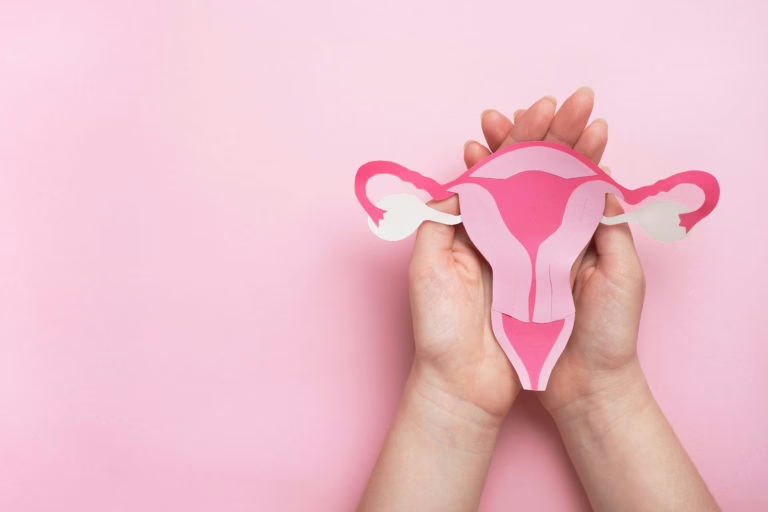
Link copied! If you are trying to conceive, or if you have bad menstrual cramps, you may have heard of the term “Cold Womb Syndrome”, but what is it all about? Cold Womb Syndrome (CWS), also known as Gong Han (宫寒), is an issue affecting the female reproductive system where a lack of yang energy (yang deficiency) in the body causes a reduction in blood circulation to the womb, depriving the womb of the necessary nutrients and hence resulting it to be more cold. While one can be born with yang deficiency, this body condition is largely impacted by our lifestyle habits, i.e. taking in excessive cold raw food and salads, constant exposure to cold etc. It can affect women of all ages and can be a cause of concern for women who are trying to conceive. From a biomedical standpoint, having a cold womb means that the uterine lining is not responsive to progesterone, a warming hormone that not only helps raise our basal body temperature, it also helps the uterus lining develop post ovulation and during pregnancy. Providing a warm environment for the uterus is essential as it can increase the chances of ovulation and also ensure that the blood flow to the uterus is optimal for pregnancy. How can you achieve a warm womb (cold womb treatment)? TCM focuses on a holistic approach when treating different conditions such as cold womb syndrome. It involves taking herbal prescriptions and therapies to help warm the womb and improve blood circulation, lifestyle and dietary changes to help restore the yang in the body. You might also like to try these recipes to help achieve a warm womb: 1) Old ginger and black sugar tea Function: Warm the Spleen and Stomach and help in overall Qi circulation Ingredients: 2-3 slices of old ginger, 1L water, brown sugar (to taste) Preparation: Cook old ginger in 1L of water for 15-20 minutes, add moderate amounts of brown sugar to taste and drink throughout the day. 2) Eight Treasures soup (八珍汤) Function: Nourish the Qi and Blood in the body, providing the warmth the body needs Ingredients: Dang Shen (党参) 10g, Bai Zhu (生白术) 10g, Fu Ling (茯苓) 15g, Sheng Gan Cao (生甘草) 6g, Dang Gui (当归) 10g, Shou Di Huang (熟地黄) 10g, Chuan Xiong (川芎) 6g, Bai Shao (白芍) 10g. Alternatively, you can get ready-packed soup packs from nearby supermarkets or TCM halls Preparation: Soak herbs for 20 minutes, after which, add water, 3 slices of ginger, 5-10 red dates and pork ribs and bring to a boil. Boil the soup under slow fire for 1-2 hours. Serve warm. Good for around 4 servings. Your healing is the most important! In the clinic, physicians use a combination of TCM x Tech enhanced therapies to help patients feel better and to treat the cold from within. A combination of TCM treatments such as acupuncture, moxibustion and herbal medication aim to warm the body (yang qi), channel more blood flow to the uterus to increase the chances of pregnancy and reduce menstrual discomfort. Though the symptoms for Cold Womb Syndrome can be subtle for some, it is important to care for your uterus from young even if there are no baby-making plans at the moment. Consult our physicians to learn how you can treat the root cause with TCM. This article is written by Physician Julie Low (Oriental Remedies Group, Singapore), a registered TCM physician certified by the Traditional Chinese Medicine Practitioners Board (TCMPB). Julie Low Lead Physician VIEW QUALIFICATIONS Physician Low graduated from the double degree programme of Biomedical Sciences and Traditional Chinese Medicine at NTU in 2014 and was awarded with the Chinese Government Scholarship for outstanding academic achievements during her time in Beijing. She has been in active practice since graduation, treating patients with various ailments such as pain management, gastrointestinal issues, holistic weight loss management, etc. Through her years of practice, she has developed strong interest in paediatric care. As a mother herself, she understands the anxiety of a parent and the rigors of treating young patients. Hence she always aims to deliver her personal blend of gentle yet robust therapy methods, combining both medicinal and paediatric tuina treatment approaches to meet her patient’s needs. Physician Low strongly believes that there’s immense potential to be unlocked from TCM that can be harnessed for treatment with modern-day medicinal technology. Note: all words in Italics mentioned henceforth refer to the TCM organ system and not the anatomical organs/terms referenced in western medicine. Disclaimer: The content on this page is for information and educational purposes only. Such medical information may relate to disease, injury, drugs and other treatments, medical devices and/or health products. Medical information does not amount to advice, and if advice is needed an appropriate professional help should be sought. The disclaimer asserts that no warranties or representations are given in respect of the medical information, and that the website operator should not be held liable if a user suffers any injury or loss after relying upon the medical information. RELATED TOPICS YOU MIGHT ALSO LIKE